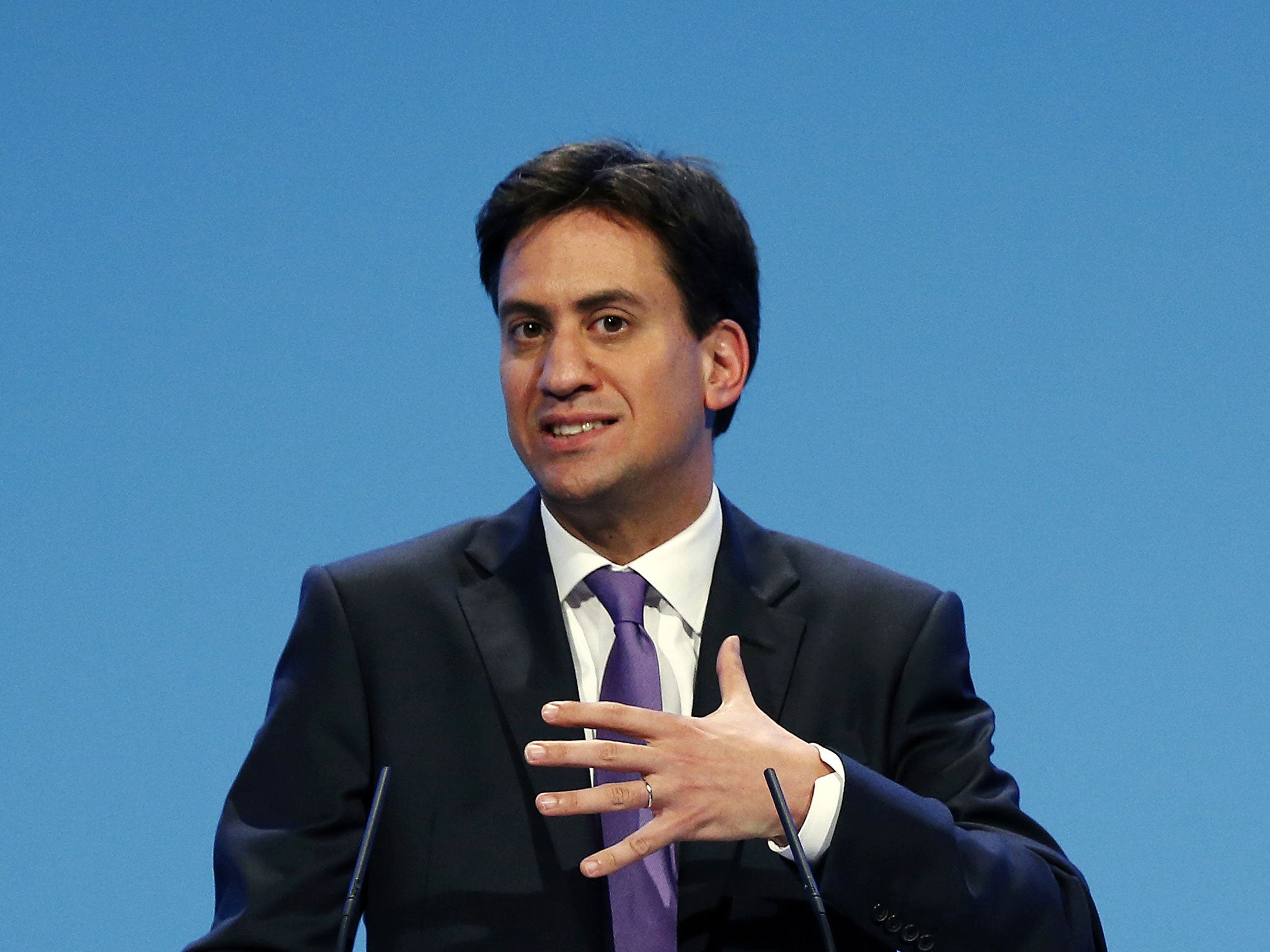Ed Miliband says a Labour government would champion the 'anxious middle classes'
Party strategists know they cannot rely on the 'cost of living crisis' to carry them to victory in next year's general election

Ed Miliband has launched an attempt to reposition Labour as the champion of Britain's “anxious middle classes” as he seeks to broaden the party's appeal beyond its traditional working class base.
In an important speech on Friday, the Labour leader will answer Conservative jibes that he has “no long term economic plan” for the country. In a foretaste, he invaded the Conservatives' natural turf by writing an article for The Daily Telegraph which produced a rare positive for Labour front page headline in the “Torygraph” declaring: “Miliband: I can save middle class.”
Just as Labour needs to reach out beyond its media comfort zone, it also needs to target voters beyond its natural supporters. Its new year strategy is designed to address the criticism that Mr Miliband's successful campaign on the “cost of living crisis” has often focused on issues affecting those on low incomes - such as a living wage; a higher national minimum wage; the bedroom tax; zero hours contracts; payday loans and fixed-odds betting terminals in bookmakers.
“We have looked more interested in the squeezed bottom than the squeezed middle,” one Labour wag quipped.
Miliband aides point out that he was quick to highlight the plight of the “squeezed middle” after becoming Labour leader in 2010. He is now determined to remind them he is not only interested in those at the bottom.
It makes perfect political sense. The middle classes tend to decide elections. There are a lot of them in the key Con-Lab marginal seats. They are more likely to vote than working class people.
Labour strategists know they cannot rely on the “cost of living crisis” to carry them to victory in next year's general election. There are signs that Labour's lead in the opinion polls is narrowing as the economic recovery takes hold, and after years of falling behind, wages are expected to rise by more than inflation later this year.
Mr Miliband will argue that the recovery must be “for the many, not the few” at the top. He believes the Tories are clinging to a relic of Thatcherism - “trickle down economics” in which the rest must hope for a few crumbs from the rich man's table when the country can afford it.
While he will welcome a real terms rise in wages, he will argue that an upward curve on a graph will not suddenly transform the lives of millions of people struggling to get by.
The Labour leader will say that people on low incomes are not the only victims of the “cost of living crisis”. He will argue that the post-war trend of each generation being better off than the last, which he calls “the promise of Britain”, has been broken. Today's anxious middle classes worry whether their children will be able to get a decent job; get a foot on the housing ladder and afford to start a family. For themselves, they worry whether they can afford a holiday and will be able to afford their care costs in old age.
For his internal critics, Mr Miliband's pitch to the middle classes is long overdue. Blairites are worried that he has sent a negative signal to the millions in the middle wooed by Tony Blair by distancing his One Nation Labour from New Labour. They maintain it is an odd political strategy to turn your back on a man who won three general elections.
Patrick Diamond, a former Downing Street policy adviser to Mr Blair and Gordon Brown, said: “To have a realistic chance of victory in 2015, Labour has to reach out to and engage with the concerns of the struggling middle class in Britain. First and foremost, that means demonstrating that Labour has the competence to manage the economy in tough times.”
Blairites want Labour to address head-on middle class fears that Labour could wreck the recovery - which will be the thrust of the Conservatives' campaign in next year's election. Another fear on which the Tories will play is that Labour would raise taxes. Even if Labour promised to target the very rich, any talk of higher taxes might frighten those in the middle.
Another challenge for Labour is to convince the middle classes that it would ensure value for money in public services. Miliband critics say Labour cannot allow the Tories to suggest they are better placed to stand up for the people who depend on health, education and other services. This could also become a crucial electoral battleground.
Team Miliband insists that Labour cannot re-run the campaign which delivered a landslide for Mr Blair in 1997. Then Labour figures used to joke about becoming the “conservatory party” as they appealed to the aspiring middle classes. “Today people are anxious. Their priority is security or even survival in the economic jungle,” said one Miliband ally.
Join our commenting forum
Join thought-provoking conversations, follow other Independent readers and see their replies
Comments
Bookmark popover
Removed from bookmarks